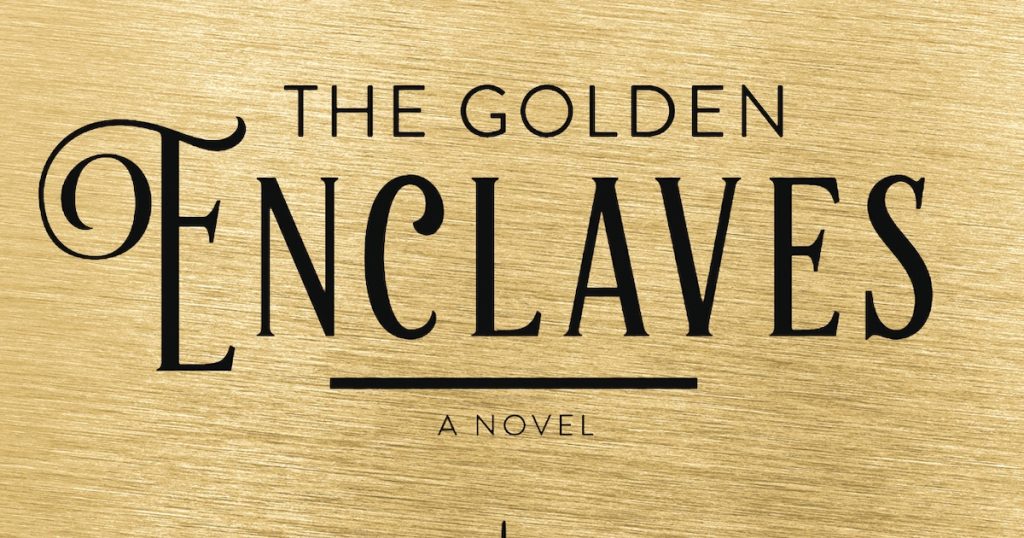Naomi Novik is one of the best fantasy writers around. Her early book, His Majesty’s Dragon and following series was one of my favorites, but it had a problem. It rather wandered around the globe, Patrick O’Brian style. Unfortunately, as an obvious result, it felt rather disconnected and random at times.
Naomi Novik conspicuously avoided series since then, with her great books like Uprooted and Spinning Silver being standalone books. That all changed with the start of the Scholomance trilogy. And having just completed reading the final book in the trilogy, I can report that this time she’s finally produced a complete series that does a good job of both providing individual story plots in each book, as well as a complete overall story.
The Scholomance starts with A Deadly Education. It is best summarized as a faster, more mature, more realistic Harry Potter. Among the obvious differences, I appreciated that the magic system actually makes sense and is cohesive. It is still very much a young adult-friendly book, with similar themes of love and friendship, but with less naivety and a faster pace.
In fact, of the many books sold as “the next Harry Potter” over the years, this is the only one that is both actually similar (magical boarding school) and also good. Actually, I rather think I like it better than Harry Potter.
I wonder if this is a reflection of the times. Harry Potter came in the post-Cold War 1990’s, where peace and happiness was everywhere (relatively speaking). Naomi Novik writes now in a world where times are darker, and where children, connected as they are with the internet, aren’t as easily kept in the dark. Or maybe our main character is just a bit older and had better parents, unlike Harry Potter, locked in a cupboard for much of his early years whom we first meet at ten years old.
That’s another thing I like about the Scholomance. There is an attitude of openness towards feelings and facing painful experiences. While our main character’s mom is definitely too perfect, as is openly acknowledged, she serves a number of useful points in that regard, and she kept me on my toes, wondering what her dark secret would be. In particular I appreciate how the story talks about many of the adults of the world making mistakes, very horrible if somewhat-rational decisions, and encourages young people to take the lead in fixing them.
The story isn’t perfect. There are a few moments of “and I spent several weeks getting better, and now I am mostly better” which felt a little rushed. The main character rattled around a bit between very mature and still-a-teenager which is actually realistic for many people, but added inconsistencies. The single biggest flaw is probably pacing. This book moves with a fast, jittery tempo, like it’s afraid it will fail if it stops moving for too long (mirroring the main character). For me I didn’t notice much overall, as I was quite busy enjoying myself.
To summarize the positives, I really like the balance in this book. I felt it did a great job of balancing hope with horror, practical with magical, and feelings with initiative. Synergy is one of the author’s greatest talents, like how here she blends little bits taken from the folklore of almost every major culture into a globalized, modern magic. The integration between magical and our contemporary non-magical technological world is better than any other story I’ve come across, in my opinion, and that builds a strong foundation for all other elements of the story while also being one of the biggest differences between it and Harry Potter.
Personally, I most love how the books are packed full of action while simultaneously maintaining a constant dialogue on all sorts of complex contemporary and philosophical issues. That, right there, is the magic of the fantasy genre as a whole, to take a half step away from the real world in order to offer both better entertainment and a new, freer perspective on the real world. By that standard then, this series is undeniably a masterwork of fantasy.
Drifting away from the story and more into my own opinions, I feel that a sufficiently smart, motivated person (or team) can really make the world a better place without having to make the sacrifices that lazy people in the past have done – killing, polluting, etc. It takes effort, but it can and should be done the right away. This book sells a message much like that, which I appreciate.
This book series seems almost certain to be made into a three season TV show. I am optimistic about this books potential as a show, with lots of cinematic action, a clear plot with some room for added side action. Perhaps my greatest concern would be adapting the characters, as, well, most teenage magic shows have very cringe-worthy characters played by actors chosen more for their looks than for talent. It would be really hard to capture that inner narrative of the main character.
Overall, I highly recommend these series. Will it continue? It might. The ending wrapped everything up nicely, but it wasn’t just a “happily ever after” ending. The main character still had work to do, which, no surprise, she’s still only eighteen years old, or thereabouts. I would love to see a second trilogy set ten or twenty years later, but that sort of thing would be very hard to write well.

